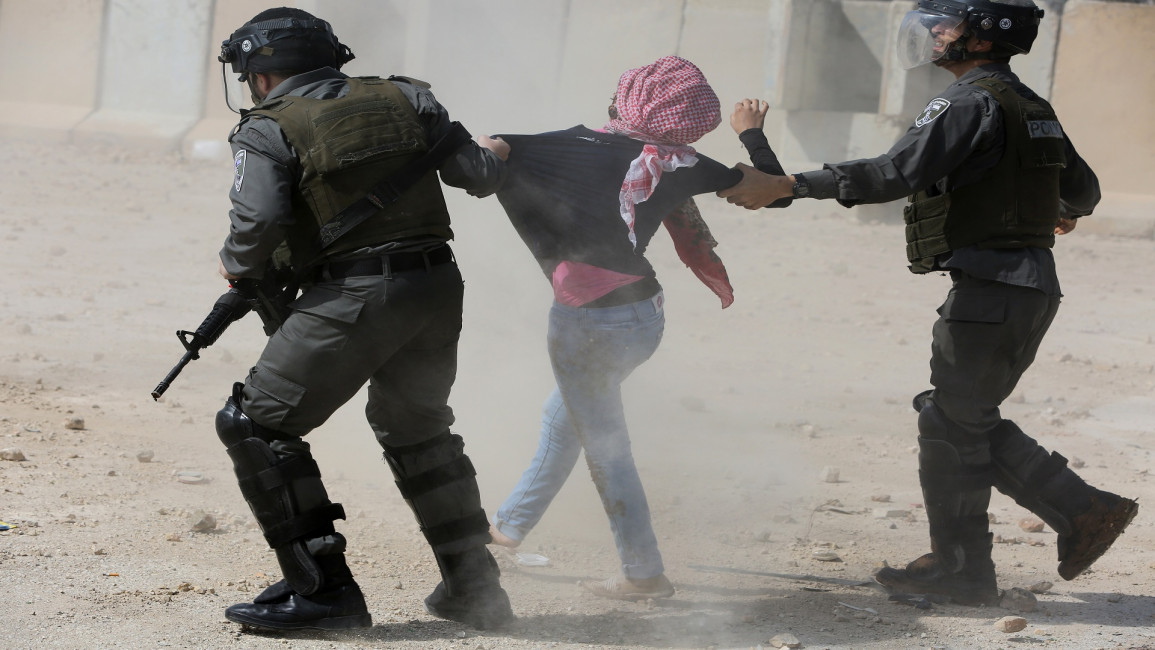
Israel between democratisation and militarisation
Since the militarisation of the Zionist movement in the 1930s, the military has played a prominent role within the movement.
After all, the movement declared itself a state after forcing the indigenous Arab population from their land.
The nation's generals fill the country's political leadership and top positions in the economy. It is fair to say that Israel is an army with a state, rather than the other way around - especially if we consider the ramifications of the military's role in different fields and its domination of the public sphere.
This is especially the case regarding the economic role the military industry plays, as well as its importance regarding trade balance and exports, as Israel is the world's fifth largest exporter of weapons.
Arab apologists
| Pappe belongs to a new group of historians in Israel challenging the dominant academic consensus in Israel. |
There are some Arab defeatists who argue that Israel is a beacon of democracy in the Middle East.
They appear to be dazzled by Israel's technological progress and consider it the result of self-advancement within the Israeli society.
However, Israeli historian Ilan Pappe rejects this view, and refers to the militarisation of Israeli society, which he sees as a contradiction of public freedoms.
He also highlights the link between Israeli progress in the field of science and prosperity within Israeli society on the one hand, with the practices of ethnic cleansing, apartheid, pillaging and the building of settlements on the other. The two cannot be separated.
Pappe belongs to a new group of historians in Israel that are rewriting the state's history from a critical perspective, challenging the dominant academic consensus in Israel.
Pappe and his colleagues, such as Shlomo Sand, have been able to expose Zionism and its bloody history by documenting the atrocities caused by the Zionist establishment, its acts of ethnic cleansing and systematic displacement of the indigenous people of Palestine.
In one of his books, Pappe explains that the Israeli army did not only establish the state; rather, it came to form its fundamental pillar and control the nature of both internal and external Israeli policies.
Internally, it adopted a repressive policy against any group that does not adhere to the Zionist agenda as viewed by the political and military elite. The militarisation of civil spheres has taken place since the state's establishment, and the military dominates the fields of politics, economics, administration and culture.
It also dominates the Israeli media, imposing its limitations and controlling what can be said. The Israeli media is a mouthpiece for the military, above monitoring, accountability or observation.
When the second Palestinian intifada broke out in 2000, the Israeli media made the military its only source of information. This continued to be the case in the July 2006 war on Lebanon and the 2008-2009 war on Gaza.
Material was not published based on what the media received from its correspondents. The Israeli media did not aid foreign correspondents, who were prohibited from covering Israeli activities during the second intifada, or sympathise with them for the fact that some of them became targets of the Israeli army's harassment.
In fact, the Israeli media went along with what the military was saying; it was the same story repeated in all Israeli newspapers and broadcasting stations.
Ilan Pappe tells the story of an operation that was carried out against the Palestinians in March 2002, when the Israeli army stormed a refugee camp in Tulkarem.
At the time, a spokesperson for the Israeli army invited TV crews and veteran correspondents to accompany the army as it carried out the operation, with the aim of showing the "humane side" of the Israeli army.
However, the images of the soldiers as they destroyed everything they came across, as they smashed down the walls of houses to get inside, as they instilled fear in the hearts of women and children, contradicted "the humane side" the media was so keen on conveying.
As a result, the Israeli army learnt a valuable lesson - and the only correspondent allowed to observe the next operation in the refugee camp of Jenin was the military correspondent Carmela Menashe of Israel Radio, who read a prepared text provided to her by military commanders.
Controlling perceptions
| The truth is that Israel did not win in 1967 because it was a democracy; it was also heavily militarised. |
It's not enough that the Israeli military controls the flow of information as much as it can; it also interferes in the field of education, which it reformulates according to its inclinations - and it does so in all areas.
If we add Israel's racism, and its brazen discrimination against Arabs, then any talk of Israeli "democracy" seems more like a naive vision that stems from a lack of knowledge or from Zionist propaganda and promotion of the Israeli model, as is the case with the Western discourse that always praises Israel's so-called democracy.
Looking at militarisation within Israel highlights the naivety of the proposals that were made after the Arab defeat in 1967, which tried to attribute the causes of the defeat to the absence of democracy and the dominance in everyday life of the military in the Arab world, in contrast to liberal Israeli democracy.
The truth is that Israel did not win in 1967 because it was a democracy; it was also heavily militarised.
It is necessary to study Israel and its strengths and weaknesses.
But this must start with a refusal to deal with Western propaganda about Israel as if it is a basic truth, and swallowing it due to a sense of inferiority. This leads to separation from the reality of the occupation and the nature of its composition and its contradictions.
Opinions expressed in this article remain those of the author and do not necessarily reflect the opinions of al-Araby al-Jadeed, its editorial board or staff.
This is an edited translation from our Arabic edition.



